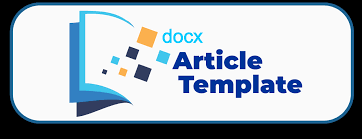E Increasing Artificial Intelligence Literacy for Information Systems Students thru Educational Workshops at Kalla Institute
DOI:
https://doi.org/10.37680/amalee.v6i2.7267Keywords:
Artificial Intelligence, Education, Information Systems, Workshop, Kalla InstituteAbstract
The rapid development of Artificial Intelligence (AI) is creating a gap between conventional curricula and the industry's need for AI literacy among students of Information Systems. Information Systems (IS) students, as future designers and developers of technology, play a crucial role in understanding and applying AI effectively and ethically. This community service activity aims to enhance the understanding of IS students at Kalla Institute regarding the concepts, trends, benefits, challenges, and ethical implications of the AI revolution in education. This service was realized through an internal workshop delivered directly by a lecturer from the Information Systems Study Program at Kalla Institute. The implementation method involved interactive lectures, discussions, and question-and-answer sessions that explored various aspects of AI in the educational context, ranging from basic concepts and practical applications to ethical considerations. Activity evaluation was conducted through pre-test and post-test questionnaires, as well as qualitative feedback, to measure the increase in participants' understanding and perceptions. The results showed a significant increase in understanding among student participants regarding the role and impact of AI in education, as well as high enthusiasm for utilizing AI for learning and future career development. This service activity successfully increased the understanding and readiness of Kalla Institute students to apply AI ethically and responsibly, contributing to the achievement of the institution's vision.
References
Anas, I., & Zakir, S. (2024). Artificial Intelligence: Solusi Pembelajaran Era Digital 5.0. 8.
B, I., Thamrin, A. N., & Milani, A. (2024). Implementasi Etika Penggunaan Kecerdasan Buatan (AI) dalam Sistem Pendidikan dan Analisis Pembelajaran di Indonesia. Digital Transformation Technology, 4(1), 714–723. https://doi.org/10.47709/digitech.v4i1.4512
Endang, A. H., Paramita, A. J., Syahruddin, D., & Syafaat, M. (2022). Pengenalan Digital Dalam Membentuk Milenial Kreatif Untuk Menghadapi Era Society 5.0 Di Kabupaten Enrekang. 3(2).
Fakhriyah, F., Masfuah, S., Ari Pratiwi, I., & Hilyana, F. S. (2024). The Mentoring for Teachers at Primary School 1 Jati Wetan in Developing the E-Diagnostic Assessment Model based on Literacy to Manage Learning Loss of the Learners. Amalee: Indonesian Journal of Community Research and Engagement, 5(2), 709–724. https://doi.org/10.37680/amalee.v5i2.5813
Firmansyah, D., Gyanendra, A., Zafitri, P., Surya, P., Nadid, T., Auliya, A. S., & Lutfianti, L. (2024). Seminar Introduction AI: Membangun Kesiapan Guru Menghadapi Pembaharuan Teknologi Pendidikan di SDN 15 Cakranegara. Rengganis Jurnal Pengabdian Masyarakat, 4(2), 266–274. https://doi.org/10.29303/rengganis.v4i2.446
Heriyawati, D. F., & Sari, I. N. (2020). Pelatihan Penulisan Penelitian Tindakan Kelas (PTK) pada Guru Sekolah Dasar di Kecamatan Sukun Kota Malang. Amalee: Indonesian Journal of Community Research and Engagement, 1(2), 101–111. https://doi.org/10.37680/amalee.v1i2.302
Hernisawati, H., Kushendar, K., & Irhamudin, I. (2024). Konseling Islam Penguatan Kualitas Kesehatan Mental Terhadap Prilaku Beresiko Pada Remaja. 4(1), 2–7.
Hubi, Z. B., Fauzi, A., Adhari, N. R., Saepuloh, D., & Sudarmaji, I. (n.d.). Pekan Karya Ilmiah Fakultas sebagai Upaya Menguatkan Jiwa Kepemimpinan serta Habituasi Menulis Ilmiah Mahasiswa.
Labobar, J. (2024). ARTIFICIAL INTELLIGENCE: Tantangan Dalam Pembelajaran Kewarganegaraan. Civics Education and Social Science Journal (CESSJ), 6(1), 63–75. https://doi.org/10.32585/cessj.v6i1.5224
Muhammad Yahya, Wahyudi, & Akmal Hidayat. (2023). Implementasi Artificial Intelligence (AI) di Bidang Pendidikan Kejuruan Pada Era Revolusi Industri 4.0. SEMINAR NASIONAL DIES NATALIS 62, 1, 190–199. https://doi.org/10.59562/semnasdies.v1i1.794
Murdianto, D., & Santoso, D. (2021). Sosialisasi Persiapan Pembelajaran di Masa New Normal bagi Guru SMK di Kota Tarakan. 2(1).
Prof. Bambang Permadi & Dr. Ir. Hammam Riza, M.Sc. (n.d.). STRATEGI NASIONAL KECERDASAN ARTIFISIAL INDONESIA. https://ppg.dikdasmen.go.id/news/peranan-kecerdasan-buatan-artificial-intelligence-dalam-pendidikan
Putri Gustina, A. R. F. (2024, December). Analisis Sikap Mahasiswa Terhadap Kecerdasan Buatan. Prosiding Seminar Nasional Manajemen. http://openjournal.unpam.ac.id/index.php/PSM/index
Qolamani, K. I. B., Abdullah, S. A., & Rekani, M. Q. R. (2024). Empowering Social Studies Education: The Role of M-learning in Fostering Motivation and Well-being.
Rifky, S. (2024). Dampak Penggunaan Artificial Intelligence Bagi Pendidikan Tinggi. Indonesian Journal of Multidisciplinary on Social and Technology, 2(1), 37–42. https://doi.org/10.31004/ijmst.v2i1.287
Downloads
Published
How to Cite
Issue
Section
License
Copyright (c) 2025 Andi Hutami Endang, Andi Jamiati Paramita, Abdul Hakim, Hany Alexandra, Yabes Dwinugroho, Furqan Zakiyabarsi, Anhar Januar Malik

This work is licensed under a Creative Commons Attribution-ShareAlike 4.0 International License.
Authors who submit manuscript retain its copyright and grant Amalee right of first publication licensed under a Creative Commons Attribution-ShareAlike 4.0 International License (CC BY-SA 4.0) that allows others to access (search, read, download, and cite), share (copy and redistribute the material in any medium or format) and adapt (remix, transform, and build upon any material) the work for any lawful purpose, even commercially with an acknowledgement of the work's authorship and initial publication in Amalee: Indonesian Journal of Community Research and Engagement.













